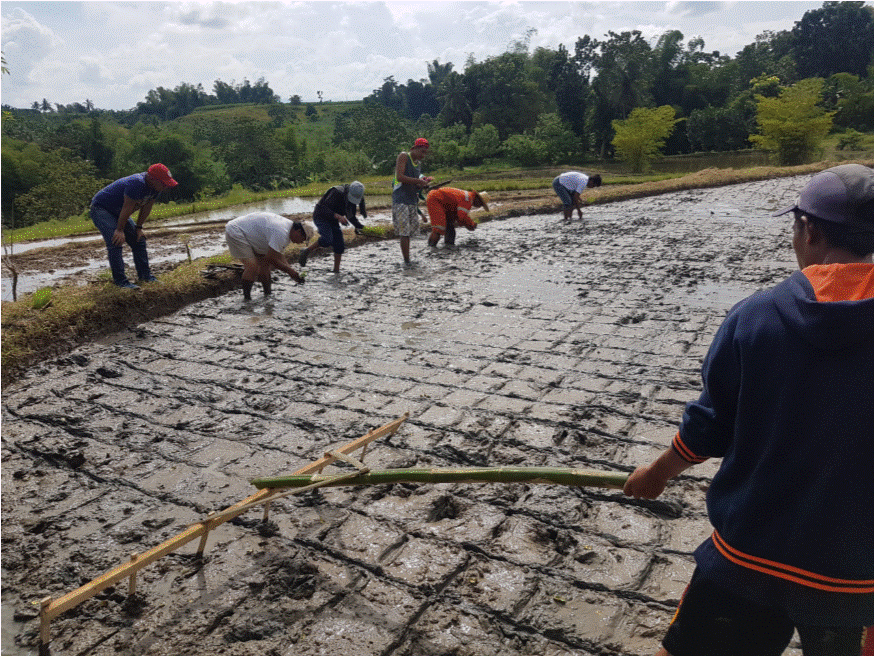

The System of Rice Intensification (SRI) is a group of agronomic management practices and principles which delivers optimum conditions for rice plants to manifest their fullest potentials for growth and yield. This climate and enviroment friendly method of rice cultivation uses 50 percent less irrigation water, requires 90 percent less seeds and allows for the cultivation of rice using only organic inputs with zero chemical or synthetic fertilizers.
SRI ensures that farmers in the group all use the same protocols or method of cultivation, use the same seed varieties and prepare organic inputs using the same formulas and use them in the same dosages. These ensure that quality of rice grains are consistently of high quality and of the same organic integrity from farmer to farmer.
Additionally, organic SRI plants exhibit substantial root architectures which allows them to withstand long periods of drought or extreme bouts of wind and rain. The deeply entrenched roots also allow for maximum uptake of nutriens and water as well as allows the rice plants to sequester deeper in the soil horizon, organic and photosynthetic carbon. The use of intermittent irrigation also lessens emissions of methane as a Green House Gas and the non-use of fertilizers reduce carbon emissions.
Key to the project would be the successfull execution of organic-based SRI practices and principles by the participating farmers. As such, continued training for SRI and organic agricultural practices should be conducted.
The availability of organic fertilizers and inputs is critical to replace the nutrients otherwise previously provided by synthetic fertilizers..
On-site and continuous farmer monitoring and mentoring will reduce risk and increase probability of succes especially for first time practitioners.
Volunteerism is key to success as the lack of farm labor could delay the execution of agronomic tasks related to SRI and will result in compounding of problems. If rotary weeding is delayed or not done as scheduled, weeds will grow out of control and will lead to failuer. If not enough organic inputs are avaiable and applied to the rice paddies and sprayed to the plants as foliar fertilizers, then yield will not be maximized.
Farmers who are too dependent tend to cheat and apply chemicals and poisons for diseases and pests when no one is looking. Random monitoring and strict mentoring discourages this. Only when the plants have shown their robust health will most first-timers be convinced that healthy organic rice plants can ward off pest and disease infestations on their own.
Lack of farm equipment will likewise adversely affect the planting and cultivation schedules. Preparing project proposals to government agencies should be done in advance as it may take a year or two for assitance and support to be placed in the pipeline for delivery